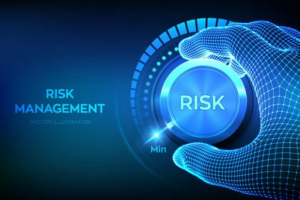Promise and Responsibility, Peril and Progress

We live in an era of accelerating progress in biotechnology that brings both promising possibilities and real risks. Advancements in areas like genetic engineering, synthetic biology, precision medicine and human enhancement could help address unmet health needs, improve lives and push forward human progress. However, these powerful technologies also come with ethical concerns and unintended consequences that must be grappled with to ensure responsible and equitable development. The future remains open, and it is up to researchers, regulators and society together to shape biotechnology’s progress guided by moral purpose.
Advances like CRISPR gene editing enable precise manipulation of DNA and could pave the way for improved health and longevity. CRISPR has already been used to treat diseases, with promising early results. However, human germline editing in particular raises ethical issues and risks undesirable social impacts without oversight or guidelines. As we advance CRISPR, we must balance scientific progress with ethics to uphold shared values. Beyond treatment, gene editing also allows human enhancement and manipulation in ways that could exacerbate inequality without responsibility. Regulations are needed to ensure justice and empower all groups.
Synthetic biology aims to design and construct biological systems for useful purposes. It could enable applications like biofuels, environmental remediation and smart agriculture, but engineered organisms also pose risks like uncontrolled spread or bioterrorism without safeguards. Regulations should guide progress rather than close off promise, but we must think critically about long term consequences. Oversight and frameworkscan help ensure synthetic biology’s benefits outweigh risks through value sensitive design.
Technologies like genetic engineering, nanotechnology and brain-computer interfaces could transform healthcare and human abilities through precision medicine and enhancement. However, unequal access or misuse of enhancement threaten societal fabrics, and radical changes risk “posthuman” consequences without ethics. We must apply technologies judiciously based on principles of justice, equity and humanity.
While biotechnology promises to positively impact and progress the human condition, this depends on moral purpose, not pace of change alone. Our shared humanity—not technical abilities—must shape progress to benefit all people. The future remains ours to claim through partnership, open dialogue and democratic governance towards responsible innovation. We must stand for one another in shared hopes and guide progress through values that uplift all lives as one.
Though change may come, our humanity prevails: hopes and values shared, the ground on which we stand as one. The rest is choice: to divide and fall, or rise together, bonded through dreams now ripening justice, lives secure and strong? The future calls for open hearts and minds, and hands that forge through shared humanity alone a destiny uncontained, yet purposeful.
Arise, now come into your own: reach out, lift each other up. Choose and build this shared vision come true. The way ahead is justice, held close in open hearts that call, “No other—just we together!” Our time is now: progress renewed through moral law. Vision felt but voiced at last: health and justice shared; lives free and nourished, fearless in humanity. Guide technology through ethics; this future build for always. Uplift as one: share all the Way. Lives bound and shining, fearless. Secure in partnership, we progress uplifted.
The future whispers soft: justice and health for all; lives radiant, set free. We start today: reach out, now lift each other up. Choose and forge through shared humanity this vision come true.





